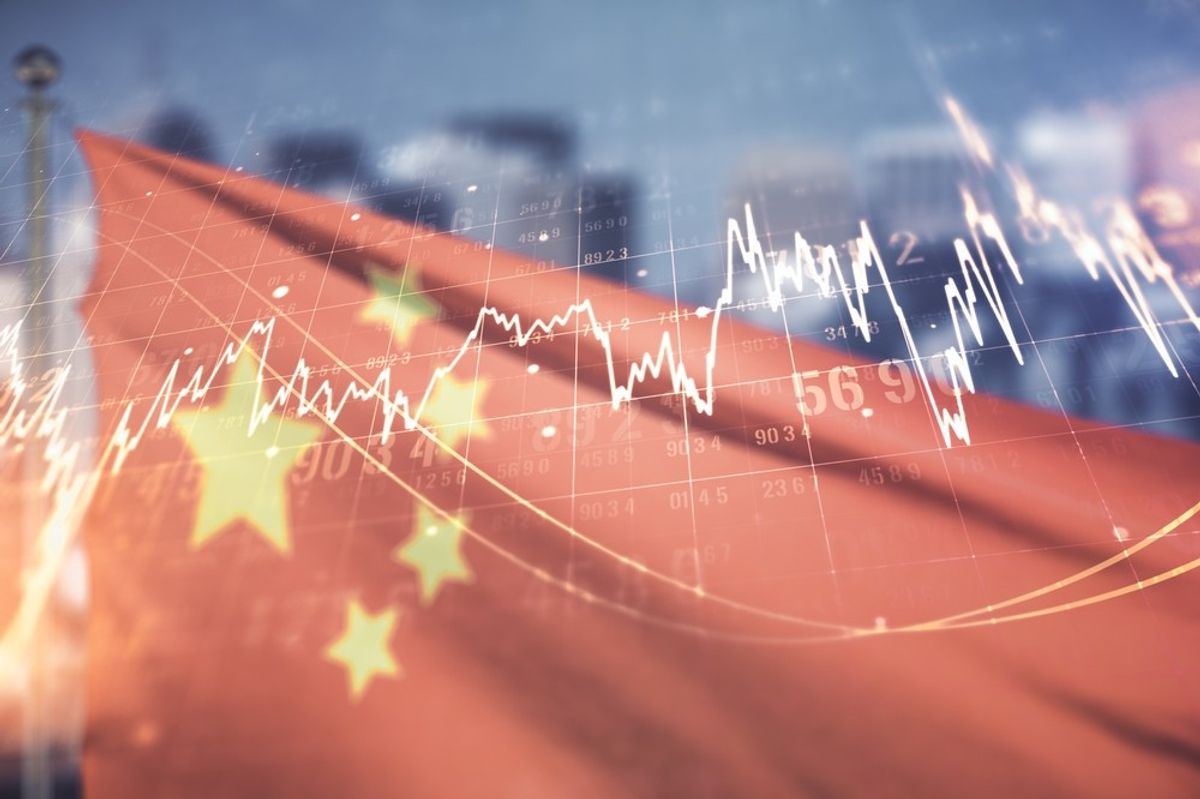Chinese stocks plunge as stimulus hopes fade, Asian markets rebound
China’s markets falter with Beijing holding back on further economic support, while stocks in Hong Kong, Australia, and Japan rally, driven by global tech gains and central bank actions.

Rana Tabbara
Senior Business Producer
Rana Tabbara is a UAE-based reporter and content creator known for dynamic storytelling, impactful reporting, and high-profile interviews. She interviewed leaders including the UAE Minister of Energy, the Australian Prime Minister, the Saudi Minister of Tourism, the Armenian Minister of Economy, and CEOs of major companies. Rana covered big events like the World Government Summit, LEAP, Cityscape KSA, IDEX, among others. Her previous experiences include The New York Times, CNN Business Arabic, and L'Orient-Le Jour.

The CSI 300 drops 5% as investors react to Beijing’s reluctance to introduce new economic stimulus.
Shutterstock
- Hong Kong stocks rebound 1.7% after a steep decline, with analysts suggesting a correction of inflated stimulus expectations.
- U.S. Fed signals cautious rate cuts, while New Zealand and South Korea see central bank actions influencing markets across Asia.
The CSI 300 Index fell by as much as 5%, nearly erasing the previous day’s gains. Meanwhile, Hong Kong's stocks rebounded by 1.7% after suffering their steepest drop in 16 years on Tuesday.
Australian and Japanese markets rose on Wednesday, driven by a surge in tech stocks that lifted Wall Street and solidified expectations of interest rate cuts from the U.S. Federal Reserve.
The New Zealand dollar weakened, and bond markets saw gains as the country’s central bank cut its benchmark interest rate by 50 basis points, marking the second consecutive reduction after initiating the easing cycle with a quarter-point reduction in August.
Concerns are growing that Beijing's recent measures might not be enough to sustain a lasting rally in Chinese equities. A report citing Premier Li Qiang on Tuesday night highlighted the need for policies to stabilize both growth and market expectations, signaling that Beijing is working to rebuild investor confidence.
Timothy Moe, Chief Asia-Pacific Equity Strategist at Goldman Sachs, told Bloomberg that Tuesday’s sharp decline in Hong Kong stocks could be seen as a “corrective event, flushing out some of the overblown stimulus expectations.” He added, “We’ve established a baseline, and from here, we may begin to find solid ground.”
Elsewhere in Asia, India is poised to announce its interest rate decision later today, while South Korea will join the FTSE Russell bond index, concluding months of official lobbying and reforms to modernize its financial market infrastructure.
U.S. Treasury bonds remained mostly stable after recovering on Tuesday from a four-day sell-off, which was triggered by strong U.S. jobs data that reshaped expectations for future rate cuts.
Ahead of the upcoming inflation report, the 10-year Treasury yield slipped by one basis point to just above 4%, while shorter-term yields eased as investors weighed Federal Reserve officials’ remarks.
Boston Fed President Susan Collins emphasized the need for cautious, data-driven rate cuts. Atlanta Fed President Raphael Bostic highlighted that while inflation risks have diminished, labor market threats have grown, even though the economy remains resilient.
Fed Governor Adriana Kugler stressed the importance of staying focused on inflation targets through a “balanced approach” that avoids stifling job growth.







Comments
See what people are discussing